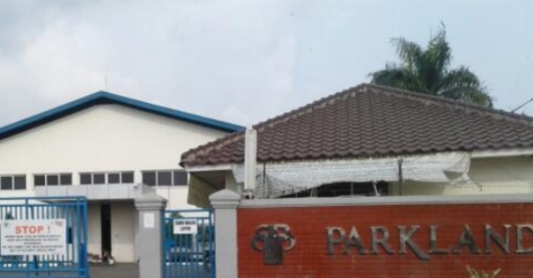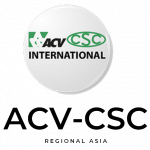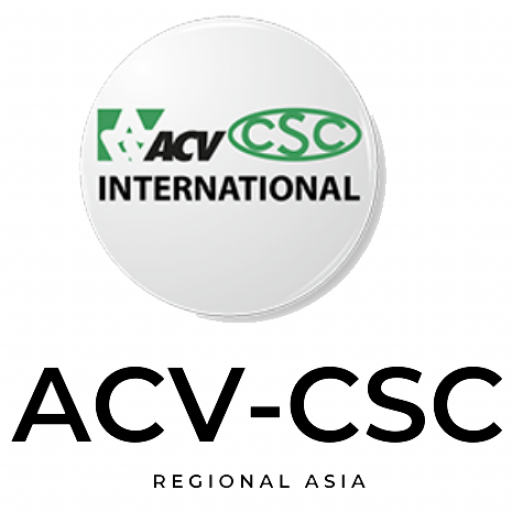Profile PT. Parkland World Indonesia 2

Alamat:Jl. Raya Gorda KM 6
Kecamatan Cikande, Kelurahan Julang, 42186
Kabupaten Serang
Banten
Indonesia
Bidang usaha:
Alas Kaki, Kulit, dan Karet
Produsen Sepatu Olahraga
ANALYSIS of PKB Parkland World Indonesia plant 2
Serang, Banten
- The Best Practice of Freedom of Association
1.1. Article 5:2: “Employers, workers/labor unions have agreed and are
determined to work together to create workplace peace and strive in accordance
with the principles of industrial relations that are harmonious, balanced, and
based on justice.”
1.2. Article 5:3: “Employers and trade/labor unions will uphold an attitude of
mutual trust, respect, and non-interference in the internal affairs of each party.”
1.3. Article 5:4: “Employers and workers/labor unions will always prioritize
deliberation to reach an agreement if there is a dispute and will not force each
other’s will.”
1.4. Article 5:5: Employers acknowledge that trade union management/laborers
have the right to regulate the operations of the trade union, including:
a. Recruiting new members.
b. Providing training, education, and counseling on the articles of association
(AD/ART) and applicable labor laws.
c. Collecting trade union dues via pay slips in accordance with the applicable
articles of association (AD/ART).
d. Providing guidance, protection, defense, and legal assistance to members of
trade unions who have disputes over their rights and interests from the
bipartite level to the Supreme Court cassation.
1.5.Article 7: Ensuring Protection for Management and Members of Trade/Labor Unions: - Employers are prohibited from taking actions detrimental to workers based on matters
pertaining to the execution of duties by the Trade Union/Labor Union organization within
the company, whether as administrators or members of the Trade Union within the
company. - Employers are obligated to support and provide ample opportunities for Trade
Union/Labor Union administrators to fulfill their daily organizational responsibilities, which
include:
a. Serving as a conduit for members’ aspirations regarding their duties and responsibilities
as employees and citizens.
b. Ensuring protection and securing the rights and interests of members to enhance
Translated from Indonesian to English – www.onlinedoctranslator.com
workers’ welfare.
c. Enhancing the skills and capabilities of members to ensure the company’s continuity.
d. Encouraging participation and fostering responsibility in maintaining workplace and
business tranquility.
1.6 Article 8: Time Allowance for Trade Union Affairs - Employers grant time allowance to Trade Union Management appointed by the
Trade Union to attend meetings or negotiations with the company to address
employment issues. This allowance is given to the designated Leader/Deputy of
the Trade Union to participate in meetings with company leaders during regular
working hours without any reduction in wages or other benefits. - Employers offer time allowance to representatives of the Worker’s Union based
on the organization’s letter of assignment to attend meetings with company leaders,
labor services, and higher-ranking officials of the Worker’s Union that pertain to
the interests of both the Worker’s Union and the employer. - Employers provide time allowance to every member of the Worker’s Union or a
Worker’s Union administrator appointed at a higher level, such as the Branch
Leadership Council (DPC), Regional Leadership Council (DPD), or Central
Leadership Council (DPP), to attend meetings, negotiations, seminars, conferences,
educational programs, and other courses, both domestically and abroad, with full
wages. - Employers grant full allowance to workers/labor union administrators to fulfill
organizational duties. - Employers offer full allowance to administrators conducting picket duties in
shifts according to the schedule.
1.7 Article 9: Trade/labor union office facilities
Employers are required to furnish adequate facilities and resources to trade union
organizations, comprising: - A suitable room designated for the trade union secretariat office, serving as a hub
for daily trade union activities. - Employers must provide office equipment and supplies for the trade union
secretariat, including:
a. Office tables and chairs for management in accordance with their duties and
positions.
b. Tables and chairs for management meetings.
c. Sofas for organizational guests.
d. Filing cabinets and regular cupboards.
e. Whiteboard.
f. Lighting.
g. Air conditioner/AC.
h. Airphone.
i. Computers.
1.8 Article 10: Trade/labor union notice board - The company shall be obligated to provide a notice board for the placement of
announcements/notifications regarding the activities of the Worker/Labor Union,
subject to permission from the company leadership. - Employers shall grant freedom to union/labor administrators to install
suggestion/complaint boxes at company premises.
1.9 Article 11: Trade/labor union member dues - Employers shall assist in deducting Workers’/Labourers’ Union dues based on the
power of attorney granted by Workers’/Labourers’ Union members upon receipt of
wages on the 5th of each month. - The amount of deduction for Trade Union dues shall be in accordance with the
respective Articles of Association and Bylaws (AD/ART) or based on an agreement
between members and the management of the Trade Union/Labor Union. - The Trade Union’s financial report shall be posted on the notice board.
1.10 Article 12: Protocol on Freedom of Association: Employers and Trade Unions are
committed to upholding the right to freedom of association as stipulated in the
articles of the Protocol on Freedom of Association, which have been jointly
signed as a form of implementation of Law No. 21 of 2000 concerning Trade
Unions/Labor Unions..
1.11 Article 14:4 “Trade/Labor Unions are involved in providing guidance for new
workers to explain industrial relations that are harmonious, balanced, and based
on justice, labor laws and regulations, and an understanding of trade/labor union
organizations.”
1.12 Article 25: 3 “Employers are obligated to negotiate with workers/labor unions
should they seek to implement new regulations not stipulated within the law or
collective bargaining agreement (PKB).”
1.13 Article 63:3c “Employers are prohibited from terminating the employment of
workers solely on the grounds that the worker is actively engaged as a
worker/labor union official and is fulfilling the responsibilities of the trade union.”
1.14 Article 65: 5 “Should layoffs become unavoidable for the employer, the intention
to carry out such layoffs must first be subject to negotiation with the
Worker/Labourer Union in a bipartite manner” - Best Practice on Wages
2.1.Article 37: 3 (Note: Contains elements of the Wage Scale Structure in three parts: Wages,
Non-wages, and Overtime)
2.2.Article 39:2 “Wages of workers who have been employed for more than one year shall
be determined based on an agreement with the Trade Union/Labor Union.”
2.3.Article 43 “Shift allowance shall be granted to workers engaged in shift work or long
shifts, with a shift allowance set at IDR 3,000 (Three thousand rupiah) per day”
2.4.Article 47: Certains to THR (given in excess of the prevailing legal provisions).
2.5.Article 48: Addresses transportation subsidies. Although not mandated by regulations,
this PKB provides transportation subsidies based on position level and attendance.
2.6.Article 50 “All-In incentives shall be provided to workers under all-in salary
arrangements who work on Saturdays, specifically applicable to employees with a 5 (five)
working days/week schedule, with the following amounts:
Position Nominal
Manager and
above Rp. 300,000 /
Saturday
Assist.
manager Rp. 290,000 /
Saturday
Chief Rp. 270,000 /
Saturday
Supervisors Rp. 250,000 /
Saturday
Supervisor Rp. 230,000 /
Saturday
Foreman Rp. 220,000 /
Saturday
Staff Rp. 210,000 /
Saturday
2.7.Article 58:1: (contains a mistaken reference to regulations, specifically Regional
Regulation No. 13 of 2017 of Serang Regency, which pertains to the Protection of
Children. The correct reference should be Perbup No. 4 of 2014 of Serang Regency.)
2.8.Please double-check articles 71, 72, 73 for any random placement of article numbers.
2.9.Article 82 concerns Worker Cooperatives, which are supported by company
facilities. Additionally, articles 82 through 86 address company and union initiatives
aimed at organizing activities and fostering momentum outside of work, such as
sports competitions, arts programs, the selection of exemplary employees, and the
provision of places of religious worship. - Best Practices on Gender
3.1.Article 64: GP2SP program (movement of healthy and productive women workers) &
gender equality - Employers and trade unions are also committed to implementing the GP2SP Program
(Movement of Healthy and Productive Women Workers) and enforcing the
elimination of gender-based violence in the world of work, as a manifestation of the
company’s concern for the protection of workers and other individuals in the
workplace. The implementation and socialization of this program are carried out
jointly or individually by each party to ensure its awareness among all stakeholders
in the world of work. - Employers, in conjunction with Trade Unions/Labour Unions, regularly conduct
educational outreach and training sessions related to the GP2SP Program
(Movement of Healthy and Productive Women Workers) and Gender-Based Violence
(including sexual, physical, psychological, and socio-economic violence) for all
workers. - Employers and Trade Unions/Labour Unions guarantee that every employee receives
equal treatment and does not face discrimination in any form, while still having the
opportunity to benefit from their rights.
3.2. Article 65:3b “Employers are prohibited from laying off workers due to marriage,
pregnancy, or childbirth.” - Best and Bad Practice regarding OSH, including elements of Climate Change and Just
Transition.
4.1. Article 63: 2 “The company ensures that every employee suffering from HIV-AIDS or
other infectious diseases receives equal treatment and does not face discrimination in
any form, while continuing to enjoy their rights in accordance with applicable
regulations.”
- About
- About2
- Activities
- Agreement / Collaboration
- Benchmarking CBA
- Benchmarking CBA F HUKATAN
- Benchmarking CBA FPE
- Benchmarking CBA FSB GARTEKS
- Benchmarking CBA FSB KAMIPARHO
- Benchmarking CBA FSB KIKES
- Benchmarking CBA of PT Indonesia Wacoal
- Benchmarking CBA PT C-Site Texpia
- Benchmarking CBA PT Shin Hwa Biz 2 (SHB 2)
- Benchmarking CBA PT. Ching Luh Indonesia
- Benchmarking CBA PT. Hwaseung Indonesia
- Benchmarking CBA PT. Parkland World Indonesia 1
- Benchmarking CBA PT. Parkland World Indonesia 6 Rangkasbitung
- Benchmarking CBA PT. Pertiwi Indomas
- Benchmarking CBA PT. Ricky Putra Globalindo
- Campaign
- Digitalization / Artificial Intelligence (AI)
- Event
- Event 2024
- Event 2025
- HRDD Asessment Cement
- Issues
- Join Us
- Landing Page
- Newsroom
- Project2
- Targeted MNCs

